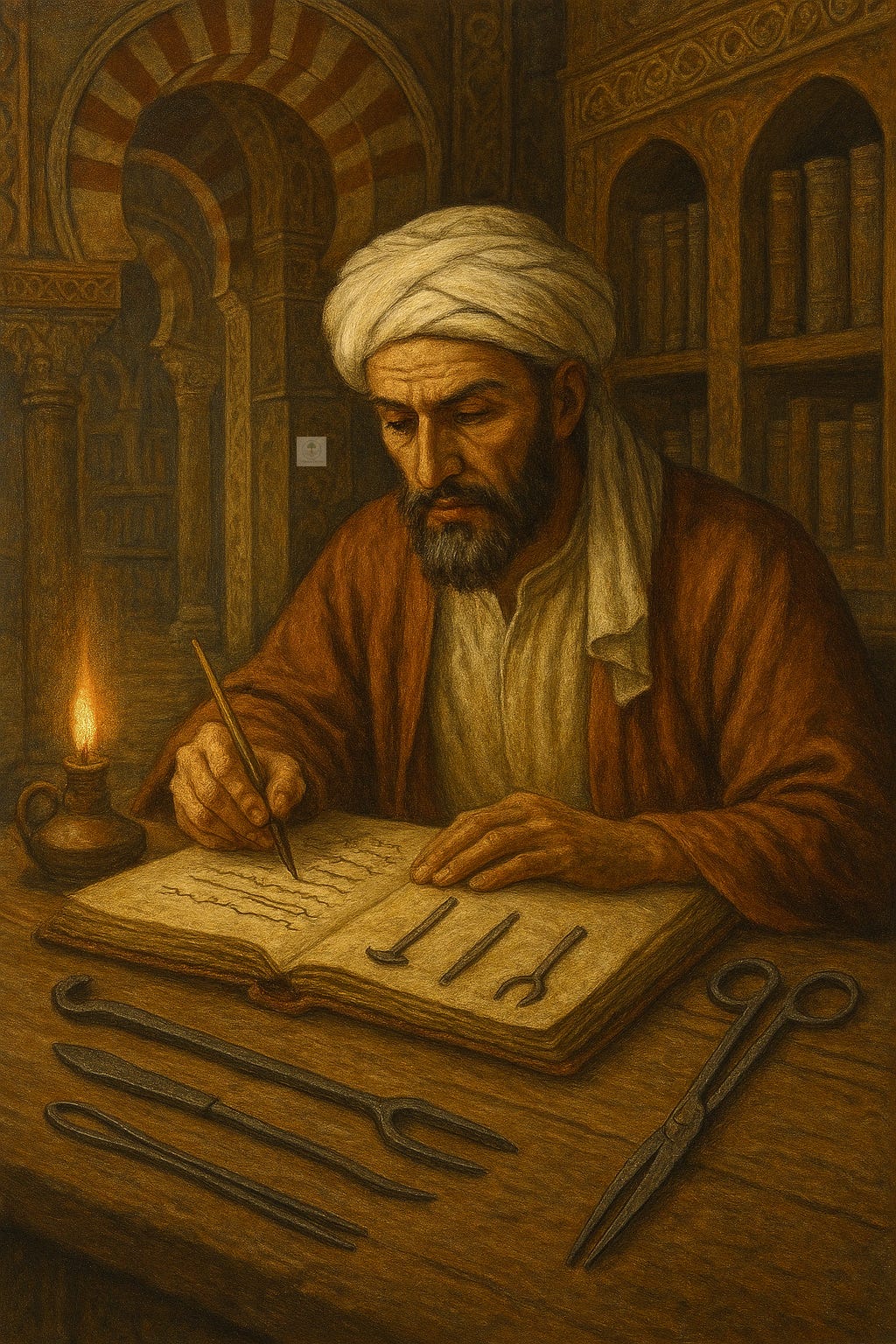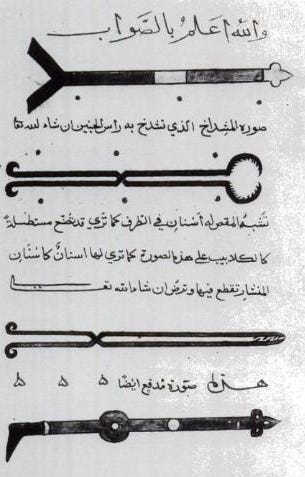When we hear about the origins of surgery, we’re taught about modern hospitals, European breakthroughs, and 19th-century medicine. But few are ever told the story of Al-Zahrawi, a 10th-century Muslim polymath whose influence shaped surgical practice for over 500 years.
The title “Father of Surgery” is often given to European names like Ambroise Paré or John Hunter, but long before them, a physician in Muslim Spain laid the foundations of surgical science. His name was Abu al-Qasim al-Zahrawi (Latinized as Albucasis), and his contributions to medicine were so advanced that his work remained a standard textbook in European medical schools for centuries.
Born in 936 CE in Al-Andalus (modern-day Córdoba, Spain), Al-Zahrawi lived during the Islamic Golden Age, a period marked by scientific innovation, cultural flourishing, and cross-cultural intellectual exchange. His most famous work, a thirty-volume medical encyclopedia titled Al-Tasrif, became one of the most influential medical texts of the medieval world. The final volume was dedicated entirely to surgical procedures and instruments, the first of its kind in recorded history【1】.
Note for the image above : Illustration of medieval Muslim surgical instruments taken from al-Zahrawi's Kitab al-Tasrif and there are many more designs of instruments in the book. Fifteenth century copy of an eleventh century manuscript. Date 15th century Source: Turner, H. "Science in Medieval Islam: An Illustrated Introduction" University of Texas. Author Abulcasis, also known as Abu'l Qasim al-Zahrawi
Keep reading with a 7-day free trial
Subscribe to VEINS OF TRUTH to keep reading this post and get 7 days of free access to the full post archives.



